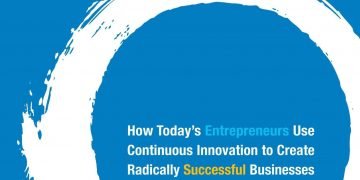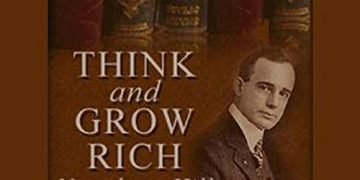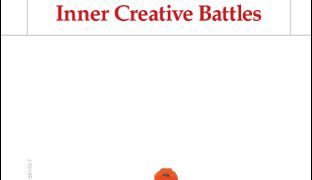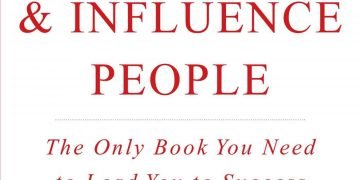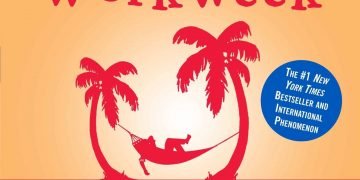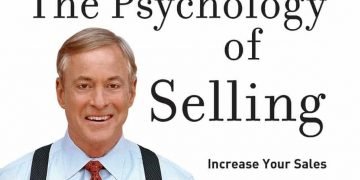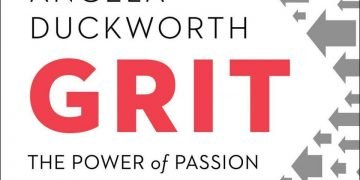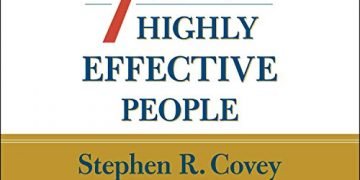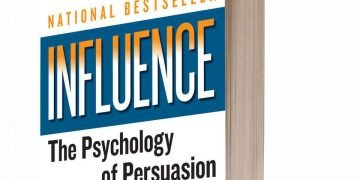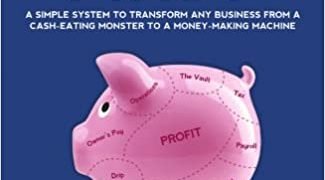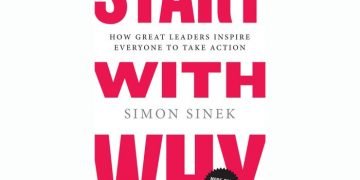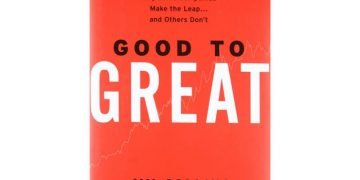The impact of good books cannot be overemphasized. It can be likened to having a conversation with the author and picking his brain. The books on this list will help you grow both in life and in business. These best entrepreneur books will give you foundational knowledge about being an entrepreneur. They will also share advice on what happens while on the journey to intrapreneurial success.
According to Warren Buffett, reading 500 pages a day is the key to success. In his opinion, knowledge builds up like compound interest. That is probably why many business professionals make reading a daily routine.
Take Elon Musk, for instance, he grew up reading two books a day. Mark Cuban reads for more than 3 hours daily. Arthur Blank reaches for 2 hours a day. Let’s go over the list of 17 business books we think everyone should read.
1. The Lean Startup by Eric Ries
Things have changed. The rules have been altered. The paradigms have shifted. Are startups smaller versions of large companies? What should the startup take to customers? Must they have a fully packaged product before they can start selling to customers? These are some questions Eric answers in the book.
The Lean Startup is a go-to book for insights about launching startups. Large companies have the tools to manage strategy, operations, and organizational theory while startups don’t. In startups, products are best built incrementally. This process is called Agile Engineering. They also need the information to decide. Therefore, they need to approach customers early to take feedback. Eric takes a scientific approach to unravel the best practices for startups.
2. “Outliers: The Story of Success” by Malcolm Gladwell
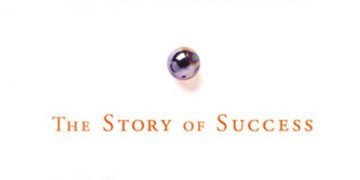
“Outliers” is an intellectual trip into the lives of the brightest and best. What makes high achievers different? This is the mystery Malcolm seeks to unravel in the book. His answer is that much attention is paid to what prominent people look like. Few people try to find out their background, culture, and family upbringing. What is the 10,000 rule? What made the Beatles the greatest rock band? What is the strangest secret of software billionaires? Why are Asians, excellent mathematicians? These are some intriguing questions Gladwell answers in the book. In answering these questions, he unlocks the secret to greatness of these unique sets of individuals.
3. “Deep Work: Rules for Focused Success in a Distracted World” by Cal Newport

Knowledge work is hard. Today, a lot of bells and whistles clamor for our attention. Notifications from an instant messaging application, notifications from social media, and so on. “Deep Work” describes the present culture of distraction and shallow work that is common today. It describes the short attention span that is the norm.
Cal explains that rather more focused, undistracted work solves many of the world’s problems.
Knowledge workers, engineers, writers, developers, university professors, and others need to focus more in order to be successful. He describes the culture in some organizations, employees work in an open office. He states the advantages and disadvantages and recommends a balance. “Deep Work” is necessary to learn fast and develop valuable skills such as machine learning and artificial intelligence.
4. “Think and Grow Rich” by Napoleon Hill
The book “Think and Grow Rich” was written by Napoleon Hill in 1937. It results from 25-years of research on some of the most successful individuals. The book is one of the universally recognized personal development masterpieces.
Even though a significant part of the book discusses increasing income, the teachings there can help people succeed no matter the line of work they find themselves. It also shows how to do and be anything you can imagine. The book was first published during the Great Depression. They have sold over one hundred million copies worldwide, according to estimates.
5. “The War of Art” by Steven Pressfield
“The War of Art” by Steven Pressfield is a book that is useful when you need to get yourself to work on things that need to be done. The book highlights the forms of obstacles faced by artists outlets business executives and others trying to break through barriers.
Steven Pressfield defines the enemy that all creatives and entrepreneurs face. He outlines a plan through which they can defeat this enemy. He also points out how to achieve the greatest success. Although it was written for writers, the book has been embraced by people of all walks of life.
6. “How to Win Friends & Influence People” by Dale Carnegie
This book by Dale Carnegie has stood the test of time. The advice in this book has taken many to the Pinnacle of success in business and personal lives. This book Will teach you how to endear yourself to people. It will teach you 12 ways to convince people to see things from your point of view. It will also show you nine ways to effect a change in others without manipulating them.
7. “The 4-Hour Workweek” by Timothy Ferriss
Since the launch of “The 4-Hour Workweek”, Timothy Ferriss has become very popular. He opened the eyes of many to a lifestyle different from the traditional business lifestyle. These days people are looking for that straightforward solution. Being an entrepreneur gives the opportunity of a lifestyle without the traditional workweek. The traditional workweek comprises about 40 hours for the average person.
Timothy knows that, and he shows readers the way to build a business that will be flexible enough to enable them to work fewer hours. Even though they work fewer hours, entrepreneurs can still accomplish all their targets.
8. “The Psychology of Selling” by Brian Tracy
Every business person knows that the key to a good business is good sales strategies. You need to sell your products and your idea. Having a great product is not enough. You need to know how to approach people and make them fall in love with you and your products. Customers need to fall in love with you first before they can fall in love with your products.
In this book, Brian Tracy gives you valuable information about how you can sell more by focusing on one thing – the person. Sometimes entrepreneurs forget the basics of selling. They believe they can skip steps and go over to making sales. Before you can make sufficient sales, you need to know the basics. Brian Tracy teaches this idea thoroughly.
9. “Rich Dad, Poor Dad” by Robert Kiyosaki and Sharon Lechter
At a younger age, your financial education may not be as high as your competitors. Especially if your competitors are older. This can put you in a position of vulnerability in business. This book breaks down everything you need to know about financial education. It does this in the simplest way possible.
This book sheds light on the traditional nine-to-five job and the risks of depending solely on this. The writer describes the rat race. This means you keep on chasing things and making efforts, without getting hold of your intended results. It is the rat race that keeps you in a job you hate, in order to pay your bills. This knowledge is not acquired by going to school, graduating with top grades, and working with a Fortune 500 organization.
10. “Grit” by Angela Duckworth
Making use of multiple studies, Angela Duckworth shook the Education world with this book. The book proves that in order to succeed; you need more than talent. Rather, what is required to succeed is a mix of passion, persistence, and grit. This becomes even more necessary when the target is a long-term target. For example, in order to grow a startup, you need a lot of grit.
11. “The 7 Habits of Highly Effective People” by Stephen R. Covey
Personal productivity depends a lot on discipline. This book by Stephen Covey, speaks about a number of principles. First, he speaks about being Proactive. This is the ability to take the initiative, rather than waiting for events to occur. Again, for entrepreneurs to get results, they have to be committed and go all in. This one of the principles that Steve talks about in the book. He also advocates win-win thinking. He insists that business is not a zero-sum game. Both parties can win if they set out to do so. The book is filled with lots of examples and inspirational advice.
12. “Influence: The Psychology of Persuasion” by Robert B. Cialdini
Business is full of negotiations. Every day of our lives, we negotiate consciously or unconsciously. Good negotiation skills can help you win new customers and keep old ones. Cialdini covers the things that influence persuasion. These include influence, reciprocation, and commitment. He elaborates on the importance of social proof. For entrepreneurs who sell digital products, they know all about social proof. They use it to convince buyers that their product is in high demand. He also speaks about the need for both parties to like each other and the importance of scarcity in business. The scarcer your product, the more value you can command.
13. “Rich Woman” by Kim Kiyosaki
Rich Woman by Kim Kiyosaki is a book that has inspired career and businesswomen. The key to success is reading books on financial education. Kim informs women everywhere about the power of money and how they can get it. She encourages women to seek knowledge about finances to ensure they don’t rely totally on men for their sustenance.
She shows women how to budget and how to invest. She covers the kind of information that is not taught in most schools. This kind of information enables them to be independent and wealthy.
14. “Profit First: A Simple System to Transform Any Business from a Cash-Eating Monster to a Money-Making Machine” by Mike Michalowicz
Business owners are sometimes taken aback when they find out that money leaves the business almost as fast as it enters. In this book, Mike provides a technique for business owners to have better control of their cash flow. He answers the question about how to get the same results with less money. Michael has devoted his life to the research and delivery of innovative strategies. Many entrepreneurs think that if they make the right investments, they would become really profitable. The book expatiates more on that.
15. “Start with Why: How Great Leaders Inspire Everyone to Take Action” by Simon Sinek
Sinek encourages entrepreneurs to start with the purpose. Each individual has a unique purpose for going into business. This purpose would highlight the uniqueness of the organization. The problems it exists to solve and the types of customers it services.
According to Sinek, when entrepreneurs get this right, they would command customer loyalty. Employees would align with the company vision and mission. This contributes to success in the marketplace.
16. “The Art of War” by Sun Tzu
“The Art of War” is a book that teaches business strategies. Many great business leaders claimed to have been inspired by the book. Tzu takes ideas of war and applies them in the business scenario. Many organizations have used the book as a basis to form a strategy and position themselves to be more competitive in the market.
17. “Good to Great: Why Some Companies Make the Leap and Others Don’t” by Jim Collins
Good to great is based on research about 11 elite companies. According to Collins, good is the enemy of great. In order words, why should you be just good, when you can be great? Collins speaks about the factors that transform companies that have always been good into great ones. To be great, a company needs to be disciplined and take facts at face value.
MORE:

